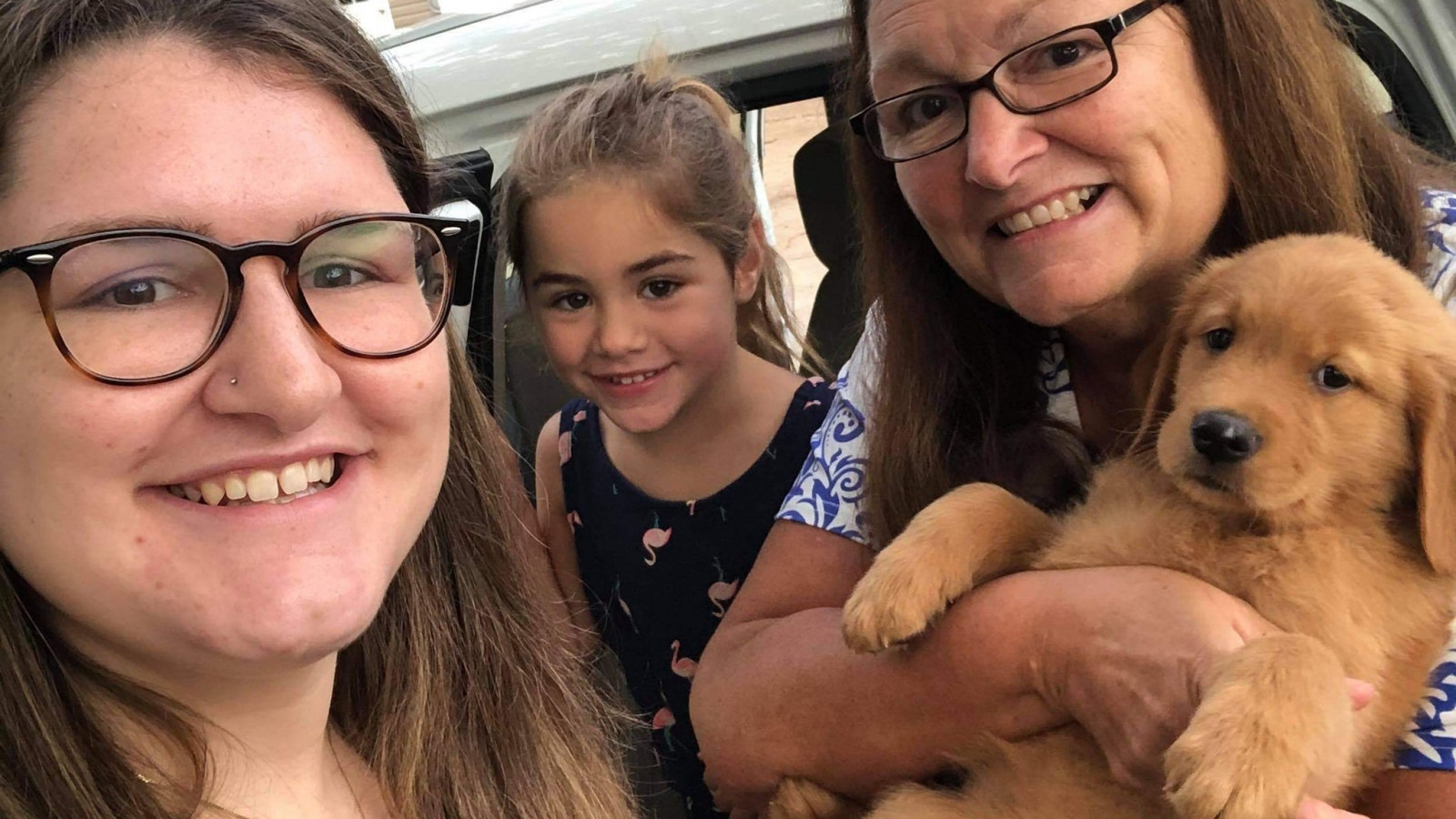In December 2016, Joanne Clough of Camp Hill, Pennsylvania, learned that her daughter Emily died of a heroin overdose. Emily’s daughter Carter was almost nine months old.
Joanne filed an emergency petition for custody of her granddaughter because Carter’s father was dealing with substance misuse, thus preventing Carter from going into the foster care system. The court granted her petition for a very short time, and then they had a conference with the court, which resulted in her being awarded primary physical custody.
At the time, Carter’s dad received shared legal custody so he could participate in decisions for Carter, but then he lost that ability when he relapsed and started using substances again.
Joanne Navigates Unexpected and Unfair Financial Challenges
After raising two daughters as a single mother, Joanne, who was 59 when she got custody of Carter, had to start all over again. She gladly stepped up to raise her granddaughter, and she needed a little help to do so.
A family law attorney with more than 35 years of experience, Joanne was self-employed and had not been working as much as she dealt with Emily’s heroin use for more than four years. “You’re just on a roller coaster of hell when you’re going through this,” she shares.
She had to get back to working full time, and therefore, needed help with child care. Joanne applied for a child care subsidy, and she and Carter were not treated equitably.
“At first they treated me like I was trying to commit fraud, they treated me horribly. Because I’m a lawyer they assumed I was rich. I was not, and I gave them information to show that.”
- Joanne Clough
She explained that her income had plummeted in recent years. She practices family law as a sole practitioner. Her clients can’t afford to pay a lot, and often don’t pay for long periods of time. But the child care subsidy is based on the household income, and when she explained that her younger daughter, Diane, was in college in Washington, DC where she was supporting herself, they counted Diane’s work-study program income as part of the household income in order to exclude Carter from the subsidy.
The work-study income was part of Diane’s financial aid package which required her to work and was meant solely for her education. Diane had no obligation to support her niece. But the Pennsylvania state policies allowed for the work-study income to be included. Joanne gave up.
“I was going through the worst moment of my life; I had just lost my daughter. It was too much. I’m a lawyer, and I couldn’t navigate my way through this.”
- Joanne Clough
She did manage to get Social Security Survivor’s benefits for Carter, based on Emily’s work contributions. Initially, Carter continued to receive WIC nutrition support. And because Carter and Emily had been on the state Medicaid health insurance, Carter was allowed to continue that because it was based only on her income and not the household income.
Joanne’s health, financial security, and retirement planning have suffered. That first year, child care for Carter cost $15,800.
“The cost of daycare just wiped me out. A lot of other things went unpaid. I went without health insurance for 3.5 years of the nearly 5 years I’ve had Carter. Now I get a subsidy through the Affordable Care Act, so at least I have health insurance.”
- Joanne Clough
Joanne Reflects on Support that Could Have Been Available
Had Carter entered the foster care system, and thus been in the custody of the state either with unrelated foster parents or with her grandmother, under the kinship foster care program in Pennsylvania, she would have received financial assistance, a child care subsidy, respite care, and other supports. But because Joanne prevented Carter from going into foster care, Carter was ineligible for those supports.
“Apparently they think that because I’m family I automatically can afford to raise more children and I never need a respite break. Every grandparent does not have to do this and, you know, I chose to do it and I will do it, but that doesn’t mean it’s easy to do it.”
- Joanne Clough
Today, Joanne is 64, and she still raises Carter. Carter’s father is doing better, and Joanne now allows Carter to have visits with her dad, his girlfriend, and her new baby brother.
Joanne is one of millions of grandfamily caregivers in the United States. To help other grandfamilies, she is an advocate for grandfamilies and those affected by the opioid epidemic. There was no grandfamilies’ support group in her area when she started raising Carter, so she and others started one that remains strong today. She is a member of Generations United’s GRAND Voices Network and has also been a grandparent member serving on the Pennsylvania House of Representatives Children and Youth Subcommittee on Grandparents Raising Grandchildren, where she speaks on issues such as legal guardianship, custody, daycare, and other expenses.
While grandfamilies are of all geographic locations, socio-economic levels, and races/ethnicities, Black, American Indian, and Alaska Native children are the most likely to be in grandfamilies. Grandfamilies arise out of events that separate children from their parents, such as death, including from COVID-19, substance use, incarceration, mental illness, divorce, or military deployment. The systems and services that help U.S. families—in areas such as housing, education, and health care—were not designed for grandfamilies.
Read more stories and learn how policymakers can help create policies and systems that better support grandfamilies in Generations United’s 2021 State of Grandfamilies report.
This story was edited and re-posted with permission from Generations United.
